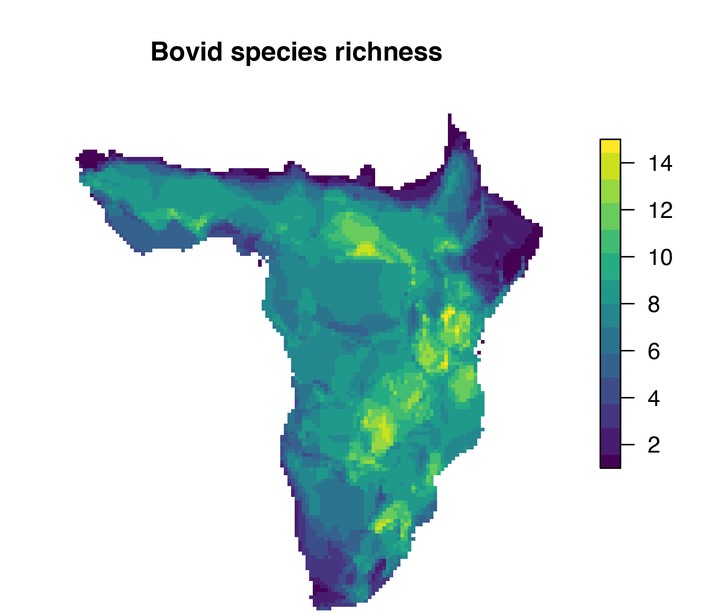African palaeoecology
 bovid species richness
bovid species richness
##African palaeoecology##
A great number of unsolved palaeoenvironmental questions concerning hominins relate to their emergence during the Miocene and early radiation through the Pliocene. Understanding the relationship between ecosystem dynamics and hominin palaeobiology is fundamental to test hypotheses that attempt to elucidate the influence of the environment on the morphological and behavioural adaptations of early hominins. The mammalian fossil record offers critical evidence about the context of human evolution by providing comprehensive information on faunal change through time. The analysis of this outstanding fossil record can provide essential insights about the interaction of environmental change and mammalian evolution, including processes that likely affected hominin evolution. Hence, I am currently collaborating with different colleagues to better understand this key time periods. To develop this line of research I was recently awarded both a Leverhulme Early Career Fellowship and two Boise Funds for Palaeanthropological Research. I am currently working on the following sub-topic:
• Development of new dental ecometrics to reconstruct the African late Miocene/early Pliocene environment: As teeth are the most common mammalian remains found in the fossil record, many studies have used them as source of palaeoecological information. Among the promising approaches applied to interpreting palaeoclimate from dental remains, there is a method known as ‘dental ecometrics’. This refers to the study of tooth functional traits that have a relationship with climate or environmental gradients at the community level. This research will generate innovative automated ecometric models to reconstruct the paleoenvironments of the African late Miocene/earliest Pliocene using more complex 3D dental variables and machine-learning regression methods. I was awarded a Boise Fund grant to carry out this project, and I am applying for a Synthesis Access project in the following weeks, to strengthen my comparative sample.